The government in Tehran seems to be changing their use of filtering software, or at least there is an increased diversity. According to older data from stop.censoring.us and Opennet Initiative, the Iranian authorities use SmartFilter – a commercial filtering solution from an American company – to control the citizens’ access to certain websites. My sources suggest that there seem to be other solutions as well, even though SmartFilter may well still exist. Rumors are floating around however, about German solutions, and about more sophisticated Chinese tracking systems. What?s clear is that there seem to be a plethora of solutions used, without any coherent strategy or use of a single point of exit, such is the case in other countries. This should, in theory, mean that the block lists also differ slightly between ISPs?
Below are five screenshots sent to me from within Iran. The sixth and last screenshot was taken by me in May 2006 and is shown for reference.
The images show different block pages, some clearly identifiable as output from other filtering packages than SmartFilter, but since I don’t have access to the source code for these pages, I cannot examine code nor headers. Chances are that it would reveal more information.
(The images have been altered slightly to avoid exposing my sources.)
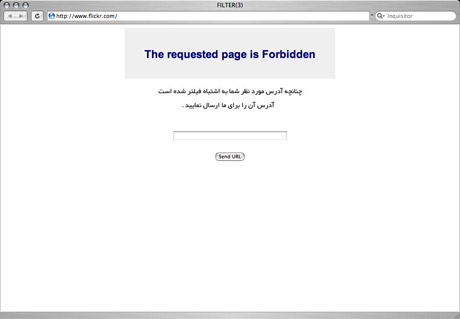
Block page from Datak (Tehran) Datak is an ISP offering dial-up, ADSL and Wifi/Wimax internet access in Tehran and some of other provinces. Flicker is blocked, as can be seen in the example. Unknown filtering software.
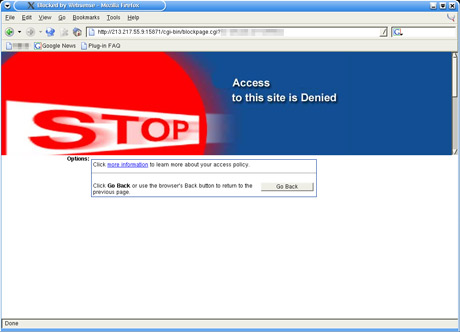
Block page from Parsonline (From blockpage.com) When this screen shot was taken, ParsOnline used Websense to filter websites, as disclosed by the page title.
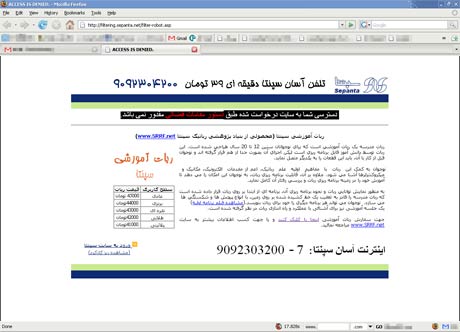
Block page from Sepanta (Tehran) Sepanta is an ISP – not sure about their size or location – and this is their block page. Not sure which filtering software is being used here. (The page you get redirected to is also accessible from outside Iran.)
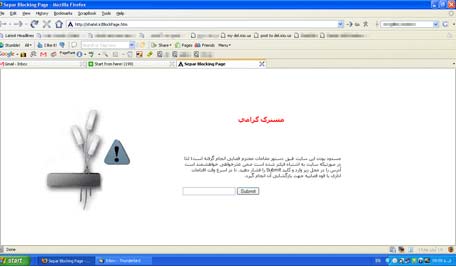
Block page from Shatel (Tehran) ISP offering dial-up and high-speed access in Tehran, Karaj and Tabriz. Seem to be using the Separ system for filtering. Separ is an Iranian hardware-based product. Switching to this solution was apparently not hassle free for the users, I’ve heard, with hours of downtime.
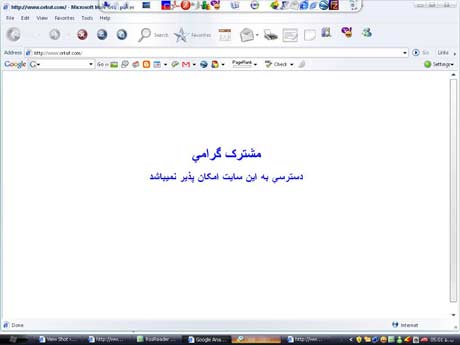
Block page from a university in southern Iran This block page looks identical to what is reportedly used by the Telecommunications Company of Iran. Said to be based on SmartFilter.
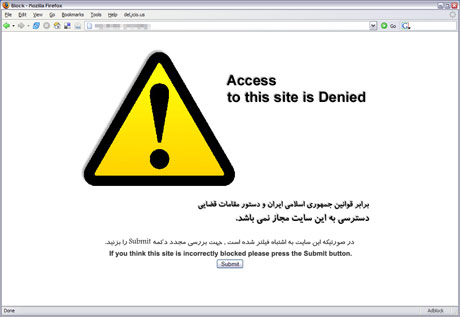
Block page from Internet café in Tehran, May 2006 This was the block page I saw most often when I was in Iran. (Here is another version of the page, taken in the same café taken just the other day ? still the same.) The Internet Café’s IP resolves to ParsOnline and it’s reasonable to suspect that this is their block page. Why this is different is from the one at blockpage is unclear to me. One is probably newer than the other. Anyone knows?
Western Companies Chasing Profit?
Looking at the Iranian software market, the first thing that strikes you is that everything is pirated. Everything! The concept buying software is completely and utterly non-existent. Or rather, software is might well be bought, but it’s not the real thing – even though it has the glossy CD-sleeves and plastic wrapping. In any computer store, there is the ubiquitous software shelf with pirated CDs en masse.
This makes me question the outbursts of morality that companies such as SmartFilter receives, when mentioned as the suppliers of filtering software to Iran. Even if they use software from western companies, I sincerely doubt the Iranian regime is paying license fees for them. (And, if producing filtering software is immoral to begin with is another question – but also an entirely different discussion.)
